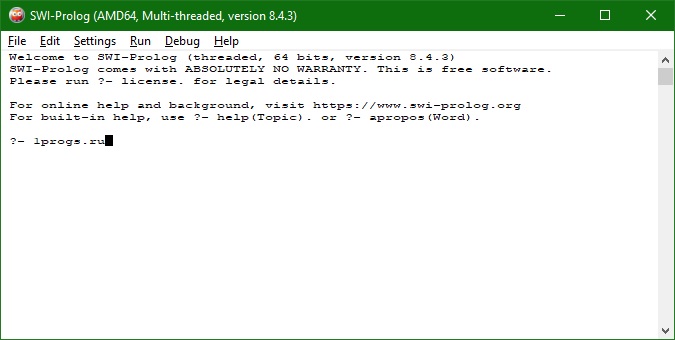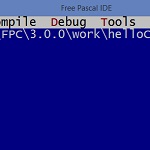Bagas31: SWI-Prolog is a free and open implementation of the Prolog logic programming language for Windows. SWI-Prolog provides a rich set of libraries and tools for developing and debugging Prolog applications. SWI-Prolog also supports integration with other languages such as C, Java, Python and R.

Here are some features and benefits of SWI-Prolog:
- SWI-Prolog supports the ISO Prolog standard and extends it with many modern features such as dynamic module loading, multithreading, garbage collection, exception handling, etc.
Download for free SWI-Prolog 8.4.3-1
Password for all archives: 1progs
- SWI-Prolog has a built-in interpreter that allows you to run Prolog programs interactively or from the command line. The interpreter also supports a debugging mode, in which you can monitor program execution, set breakpoints, examine variable values, etc.
- SWI-Prolog has a powerful compiler that can convert Prolog programs into efficient bytecode or executable files for Windows. The compiler also optimizes Prolog programs using various techniques such as predicate inlining, argument specialization, data flow analysis, etc.
- SWI-Prolog has an extensive library of standard and non-standard predicates that make it easy to solve a variety of Prolog problems. The library includes predicates for working with files, strings, lists, numbers, dates, graphics, networks, databases, XML, RDF, etc.
- SWI-Prolog has a convenient graphical user interface (GUI), which consists of several windows: code editor, interpreter console, debugging window, documentation window, etc. The GUI allows you to control the process of developing and executing Prolog programs using the mouse and Keyboard.
- SWI-Prolog has built-in support for inference and knowledge search using an ontology system (OWL) and a logical query language (SPARQL). This allows SWI-Prolog to be used to create intelligent applications such as expert systems, natural language recognition systems, etc.
- SWI-Prolog has a flexible architecture that allows you to expand its functionality using external libraries and packages. For example, you can connect SWI-Prolog to C or Java libraries using the FFI or JPL interfaces, respectively. It is also possible to install additional packages for SWI-Prolog using the package manager (SWIPL-PACK).






